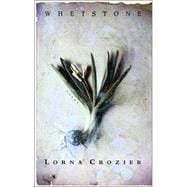
| Autobiography: Birth | p. 1 |
| This Sky Demands a Certain Patience | p. 2 |
| Beauty | p. 3 |
| Sand from the Gobi Desert | p. 4 |
| Calm | p. 5 |
| When My Father Lived on Earth | p. 6 |
| Leaving Home | p. 7 |
| Something Else | p. 8 |
| Winter Birches | p. 10 |
| Prayers of Snow | p. 11 |
| The Simplest of Movements | p. 12 |
| Whetstone | p. 13 |
| Three Movements for the Wind | p. 14 |
| What Comes After | p. 15 |
| Drought | p. 16 |
| The Light in My Mother's Kitchen | p. 17 |
| To See Clearly | p. 18 |
| Ice-Fog | p. 19 |
| Drought | p. 20 |
| Form | p. 21 |
| Shadow | p. 22 |
| The Silence of Creation | p. 23 |
| The Physics of the Rose | p. 24 |
| Lazarus | p. 25 |
| It Is Night | p. 26 |
| Anonymity | p. 27 |
| Rapture | p. 28 |
| Brushes Made from Animal Hair | p. 30 |
| Four Cows in Moonlight | p. 31 |
| Melanoma | p. 32 |
| Letter Home: Too Much, Too Little | p. 33 |
| Poem for a Hard Time | p. 34 |
| What Refuses Form | p. 35 |
| Setting | p. 37 |
| Solitude | p. 38 |
| Past the Middle of My Life | p. 39 |
| Rebuttal to the Higher Power | p. 40 |
| Drought | p. 42 |
| Hoping to Fix Up, a Little, This World | p. 43 |
| Drinking in Moonlight | p. 44 |
| Tu Fu Warns Li Po When Li Po Departs after a Night of Carousing | p. 46 |
| What Can't Be Seen | p. 47 |
| At Anny's Stable | p. 48 |
| Winter Day | p. 49 |
| Leaving the Garden | p. 50 |
| Family Custom | p. 51 |
| Divining | p. 53 |
| All Things Passing | p. 54 |
| Counting the Magpie | p. 55 |
| Summer Small Talk | p. 56 |
| Late July | p. 58 |
| The Weight of August | p. 59 |
| No Music in It | p. 60 |
| Birthday with My Mother | p. 61 |
| Measure | p. 63 |
| Below Zero | p. 64 |
| Late August Threnody | p. 65 |
| Wind/Mind | p. 66 |
| Small Gesture | p. 67 |
| Blizzard | p. 68 |
| The End of the Century | p. 69 |
| Acknowledgements | p. 71 |
| Table of Contents provided by Ingram. All Rights Reserved. |
The New copy of this book will include any supplemental materials advertised. Please check the title of the book to determine if it should include any access cards, study guides, lab manuals, CDs, etc.
The Used, Rental and eBook copies of this book are not guaranteed to include any supplemental materials. Typically, only the book itself is included. This is true even if the title states it includes any access cards, study guides, lab manuals, CDs, etc.
Excerpted from Whetstone by Lorna Crozier
All rights reserved by the original copyright owners. Excerpts are provided for display purposes only and may not be reproduced, reprinted or distributed without the written permission of the publisher.